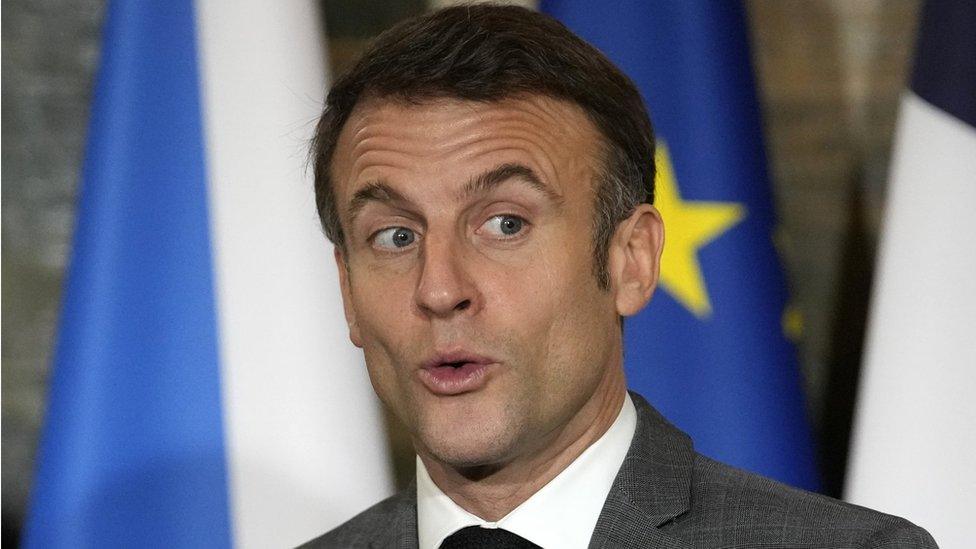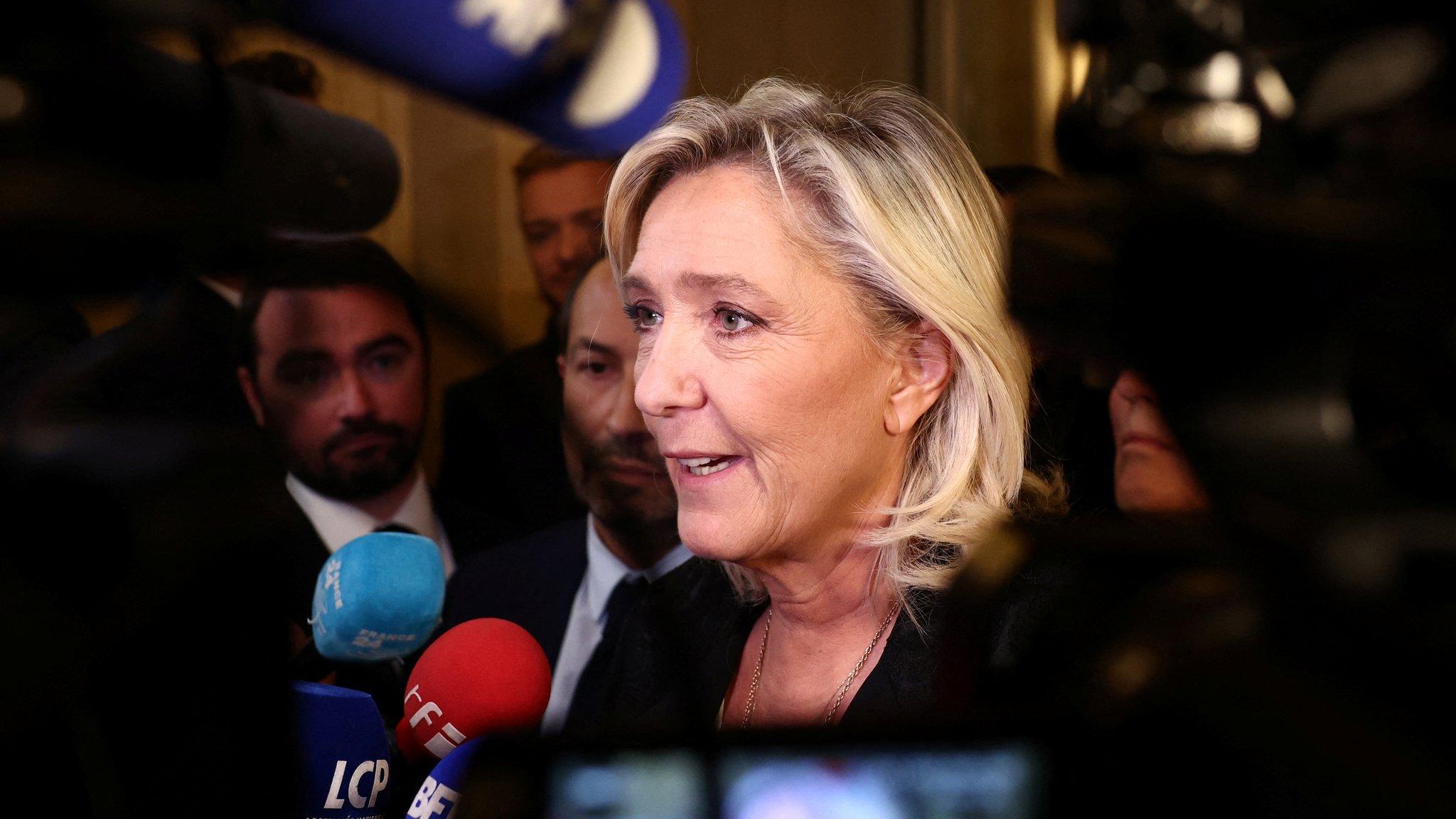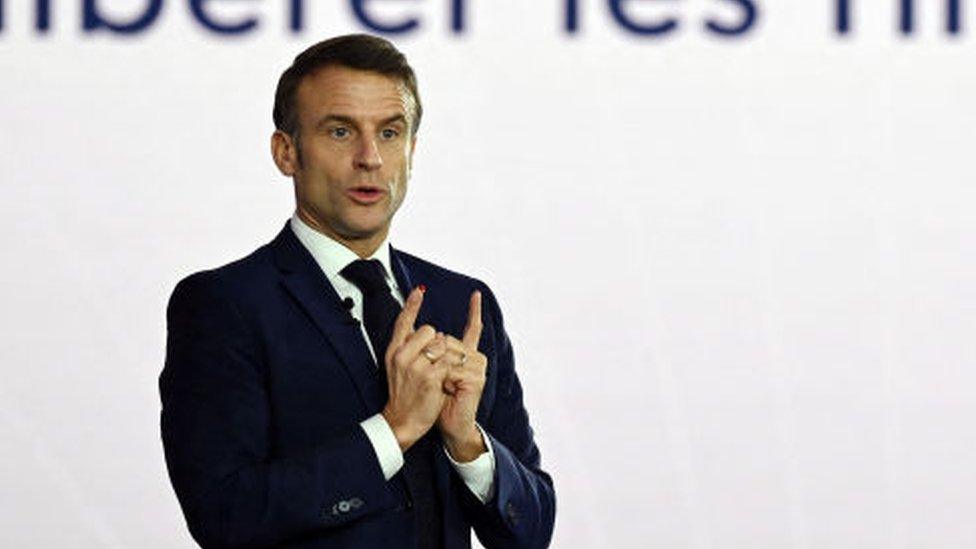Macron defends tougher immigration reform as 'shield'
- Published

Emmanuel Macron said his government needed to "calm the tensions" in the country
French President Emmanuel Macron has defended a controversial immigration reform, describing it as a "shield".
He said the tougher legislation - passed by MPs on Monday - was needed to cut an influx of illegal migrants.
It makes it more difficult for migrants to bring family members to France and delays their welfare benefits access.
The vote split Mr Macron's centrist Renaissance party and his health minister resigned. Marine Le Pen's far-right National Rally backed the bill.
Leaders of a third of French regions said they would not comply with certain measures in the law.
On Wednesday, Mr Macron told the France 5 TV channel that the country had "an immigration problem".
"It is a shield that we needed," he said, referring to the new law.
The president added that his government needed to "stand by" the measure and "calm the tensions" in the country.
And commenting on the protest resignation of Health Minister Aurélien Rousseau, Mr Macron said he "respects" his position.
The bill was passed after the government had toughened a previous rejected draft to get the votes of Ms Le Pen's lawmakers.
One controversial provision of the legislation discriminates between citizens and migrants, even those living in the country legally, in determining eligibility for benefits.
It also bans detaining minors in detention centres.
Ms Le Pen welcomed the amended bill, calling it an "ideological victory" for the far-right.
But left-wingers said Mr Macron was enabling the far-right. "History will remember those who betrayed their convictions," Socialist party leader Olivier Faure said.
In France, 32 of the country's 101 departments, including Paris, said they would refuse to implement the provisions of the law on benefits for non-citizens.
The legislation will be reviewed by the country's highest constitutional court.
In a separate development on Wednesday, EU governments reached an agreement in principle to reform the asylum system across the bloc's 27 member states.
The new pact - still to be ratified by the European Council and the European Parliament - speeds up and standardises both the vetting and the deportation of rejected asylum seekers.
It also allows asylum seekers to be relocated from southern member states, which have the highest numbers of arrivals, to other countries.
- Published20 December 2023

- Published20 December 2023

- Published12 December 2023
